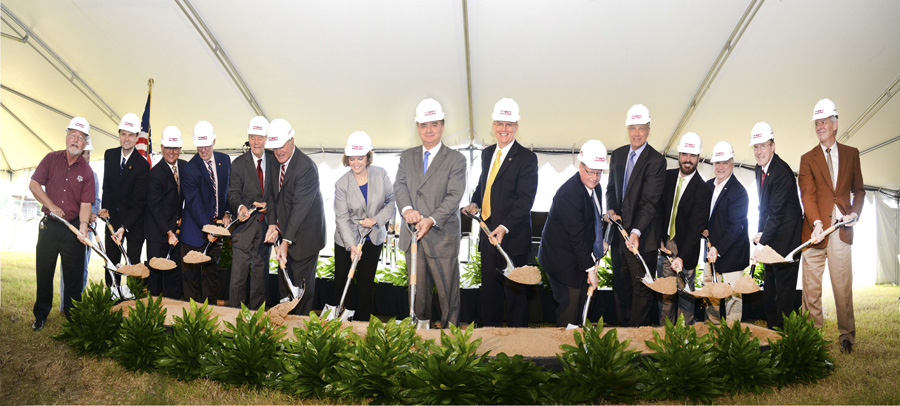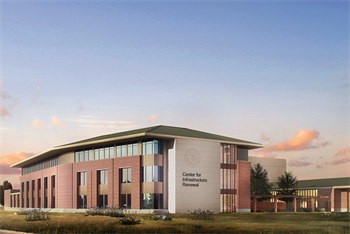
Texas A&M University System officials broke ground on the new 138,000 square-foot Center for Infrastructure Renewal on the RELLIS campus Sept. 26. The building is the first on the new 2,000-acre campus.
The Center for Infrastructural Renewal is a collaboration among the Texas A&M Engineering Experiment Station, the Texas A&M Transportation Institute and the private sector.
“Texas is at a critical juncture: an aging infrastructure system is costing billions of taxpayer dollars in construction projects using outdated technology,” said M. Katherine Banks, vice chancellor and dean of Texas A&M Engineering. “This facility will bring together the best engineers to address these challenges in ways that are more efficient, effective and economical.”
Roadways and bridges are aging at a faster rate than they can be repaired. The U.S. power grid is more than 130 years old and vulnerable to natural disasters and terror attacks. There is also a concern regarding the integrity of the nation’s oil, gas, water and wastewater pipeline systems. Modernizing these infrastructures will require interdisciplinary research teams, 21st century technologies and innovative solutions for the demands from a growing population.

“The Center for Infrastructure Renewal will bring together the researchers, agencies and industry collaborations necessary to greatly accelerate the steep change in new discoveries and innovation needed for Texas and the nation,” said Bjorn Birgisson, director of the center. “Through these collaborations, we will achieve more effective and cost-efficient infrastructure renewal solutions than are possible with today’s technologies.”
The research, testing and training facility is expected to reduce the cost and extend the life of infrastructure with new, better materials and construction methods.
Future RELLIS campus research and testing will include robotics, driverless and connected vehicles, advanced manufacturing, large-scale testing, as well as smart power grids and water systems. Companies will be encouraged to build their own R&D and testing facilities alongside and in partnership with the A&M System’s.
RELLIS also will offer workforce training, professional certificates and associate degrees as well as four-year degrees from the A&M System’s universities from around the state. The first class of students is expected to begin Fall 2018.
“We are creating an economic and education magnet that will offer the best of our state agencies and universities in one location,” said John Sharp, Chancellor of the Texas A&M System. “RELLIS is a new approach necessary to educate the next generation of Texans and expand the state economy through research and innovation.
